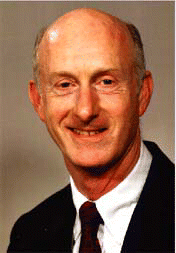The growing numbers of politicians and special interest and consumer groups pushing health insurance for all often neglect-and sometimes penalize-the people they need most for such plans to succeed: America’s physicians. Politicians usually promise budget neutrality in proposing health insurance for the uninsured, but they raise funds the old-fashioned way-by raising taxes. And politicians choose their poison carefully. When they realize that raising property or sales taxes to cover the uninsured will raise the probability of their defeat in the next election, they look for easier ways to raise revenues, and wealthy doctors are a perfect target.
Explore This Issue
February 2008Building universal coverage schemes on the backs of physicians, though, has backfired in several states, including Maine, Massachusetts, Michigan, Kentucky, New Mexico, and West Virginia. Elected officials should be learning that physicians just say no to plans that offer such negative financial impact as to be self-destructive to physicians who participate.
Massachusetts’ compulsory coverage-for-all plan is a case in point of politicians’ failures to understand the critical role that physicians play in subsidized health insurance plans. There have been widespread media reports of Massachusetts’ working poor and middle class, some of the 550,000 persons eligible for subsidized insurance policies, who have purchased policies, only to find that no primary care physician or specialist will take them on. The Bay State policy wonks neglected to grasp the Massachusetts Medical Society’s 2007 poll reporting that 49% of internists aren’t accepting new patients, and that 95% of generalists at Boston’s top teaching hospitals had stopped enrolling new patients.
Trying to avoid a similar fiasco in California, the state medical association (www.calphys.org ) is working with the legislature to mitigate the damages to physician incomes from the proposed 2% provider tax on doctors. California’s approach to slicing the health care pie includes offsets to the provider tax. Medi-Cal would increase its provider reimbursements by approximately $4 billion; insurers would be entitled to only 15% of administration and profits of the premiums paid; and licensure requirements on physician extenders would be eased. A headache for California physicians in the scheme, however, is a new, still unspecified, pay-for-performance plan that would affect reimbursement.
Roger Crumley, MD, MBA, Professor and Chairman of the Otolaryngology- Head and Neck Surgery Department at the University of California, Irvine, suggested that California could exempt physicians who accept Medicaid and/or the state’s new reimbursement plan from the revenue tax using their state identification numbers. David Dale, MD, President of the American College of Physicians, agreed that California could exempt physicians who accept public payer reimbursement from an across-the-board tax. You would think the state would exempt them from such a tax. Using physicians’ government IDs, the government could give an incentive such as an exemption to accept Medicaid and the new state reimbursement for previously uninsured. You could even build in a threshold-they have to accept a certain percentage of Medicaid patients, said Dr. Dale.

Leave a Reply